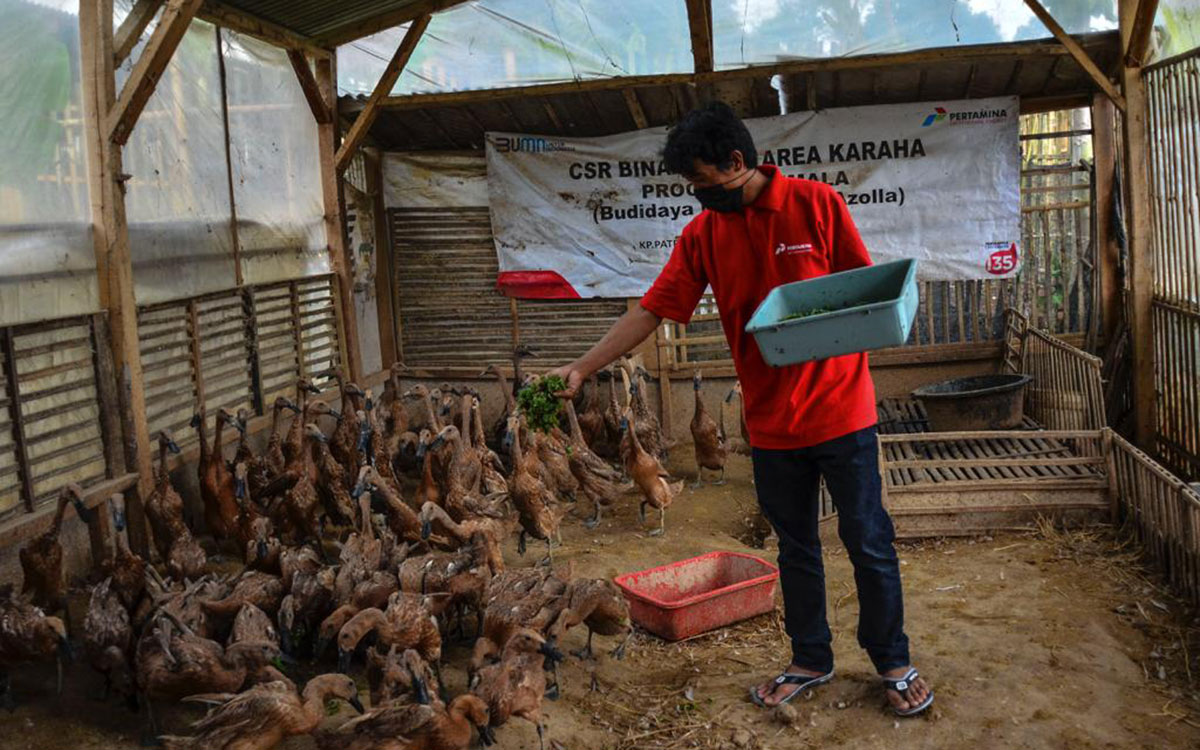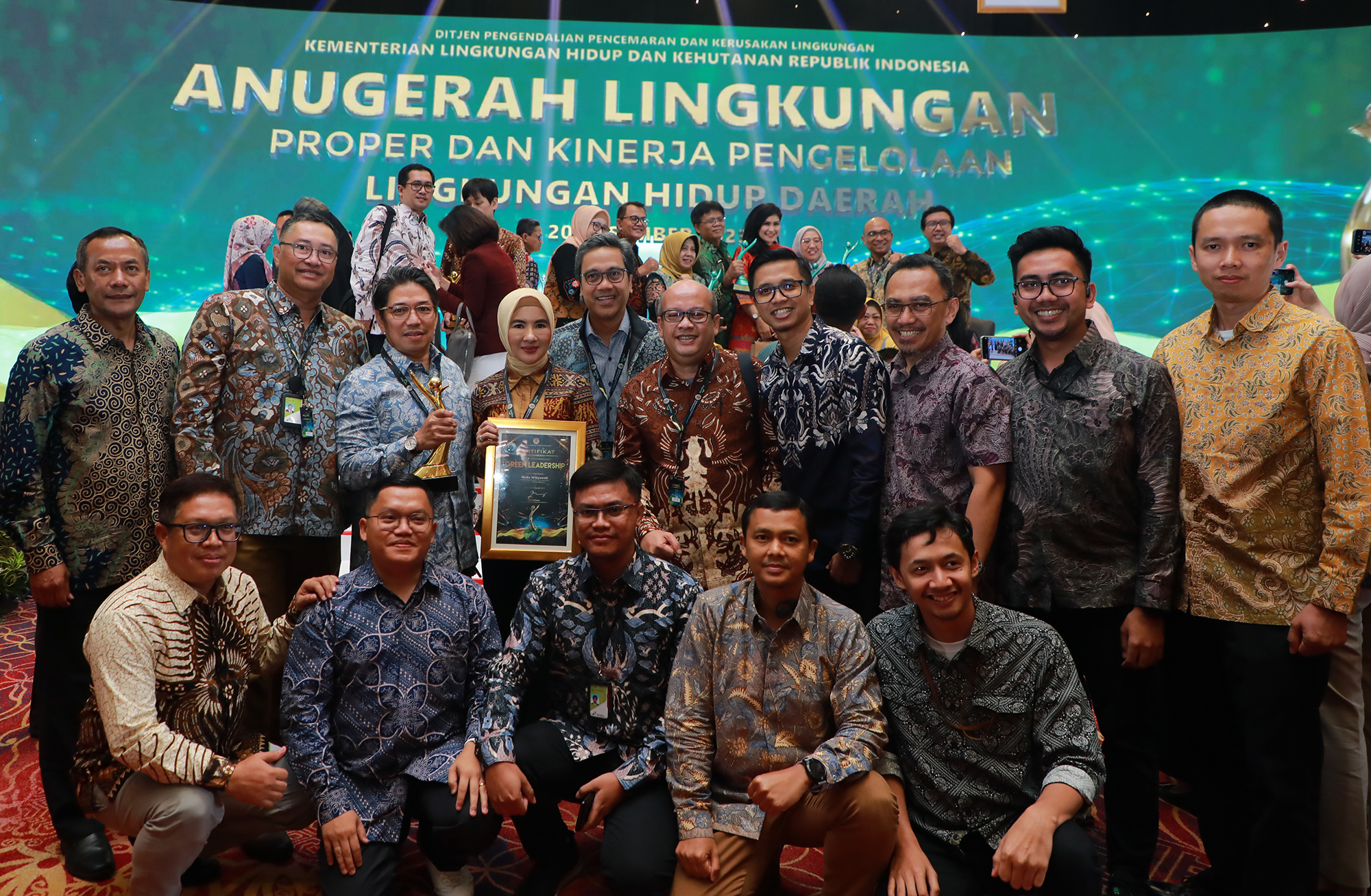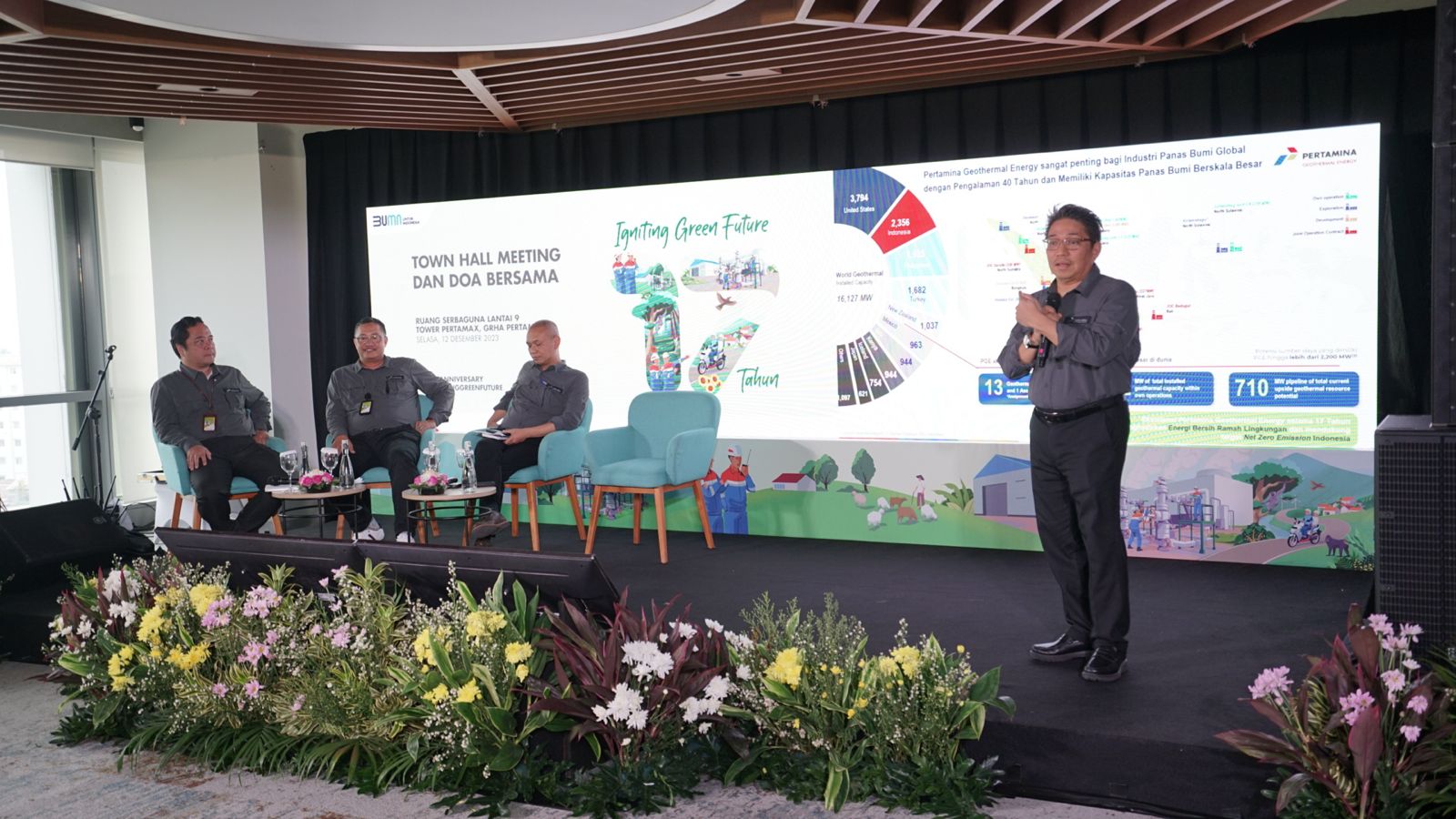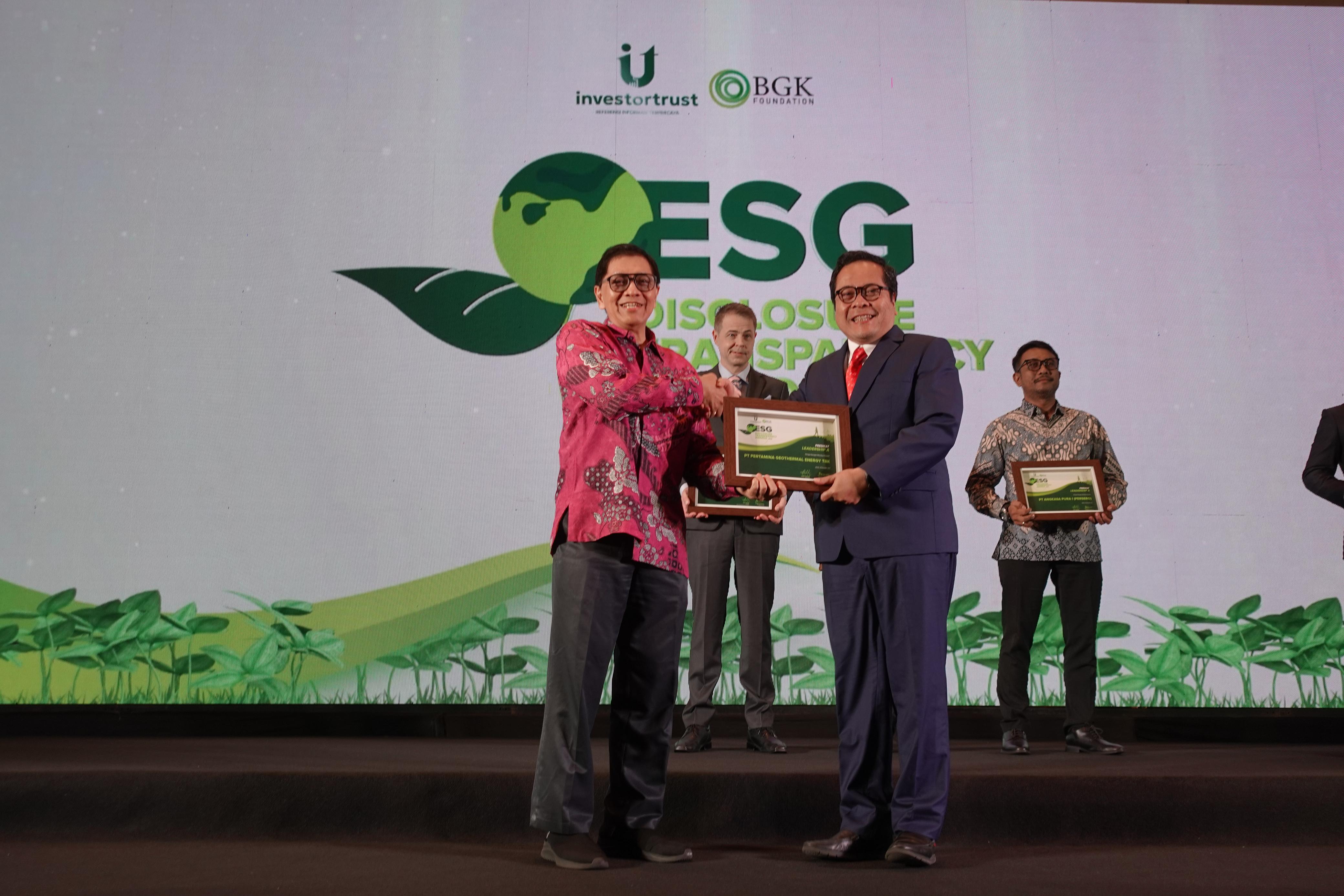The Maggot and Azola Cultivation Program (BuMala) which was launched by Pertamina Geothermal Energy (PGE) last year has proven to be able to overcome the problem of household organic waste and meet the needs of alternative animal feed belonging to the community. How not, from about 15 thousand larvae of the Black Soldier Fly (BSF) this is able to spend about 2 kilograms of organic waste in just 24 hours. Meanwhile, a BSF female can produce 600 eggs. Thus, only 20 female superflies are needed to produce 10,000 larvae to get rid of organic waste every day.
Maggot cultivation is an alternative business with very promising economic value. Because in just 15 days farmers/breeders can immediately enjoy the results. It can be from the sale of prepupae, eggs and the maggot itself. Assuming optimal feed, within 15 days 10 kg of maggot can be produced, ready for consumption (feed). Assuming 1kg of maggot costs Rp. 5000, then in 30 days it can produce Rp. 1,500,000, - depending on the market price or the buyer.
Dani is one of the farmers assisted by PGE Karaha who is part of the Motekar Group in the Kadipaten Village, Kec. The Duchy of Tasikmalaya Regency confirmed this. According to him, maggot cultivation is quite easy and cheap because it does not require sophisticated technology and does not cost a lot. In addition, maggot has benefits as animal and fish feed because it has a lot of protein.
“Cultivating BSF maggot is quite easy to do. Does not require special techniques, can be done by anyone. BSF maggot cultivation also doesn't take time because it doesn't need to be controlled often,” he said.
To fulfill feed, Dani and other group members only need to collect organic waste from household waste around their home environment, including from vegetable/fruit traders and restaurants. “To start, you don't need a large area of land, everything can be adjusted. There is no minimum area requirement for maggot cultivation.
Limited space can also produce maggot cattle that are financially profitable. Our group is very grateful for the coaching program carried out by PGE Karaha. Especially for those of us who have been laid off due to the Covid pandemic.
Thank God we can see the results from the ducks, fish and quail that we feed the maggots. Specifically for ducks, we are currently developing to try to incubate duck eggs produced in our own cages, while for quail we continue to develop. In addition, from the azolla that we cultivate, there have also been several orders from outside the city," he added.
Meanwhile, PGE Karaha Area Manager Andi Joko Nugroho said that currently the company's CSR program is directed at sustainable community empowerment. Where the mission of community empowerment is intended to develop the ability and independence of the community itself and gradually be able to build themselves and their environment independently.
"Independence in the concept of community empowerment in question is the level of progress that must be achieved so that people can build and maintain their survival based on their own strengths in a sustainable manner, meaning that to build an independent environment, an established economy is needed," said Andi.
For this reason, Andi continued, the company's role in this case is to create a climate that provides space for the community to develop (enabling), through local potential and resources that are owned and supported by an integrated concept based on needs (empowering), as an effort to protect and fulfill the interests of the community. (protection).
PT Pertamina Geothermal Energy (PGE) is a company engaged in the utilization of geothermal energy and is part of the Subholding Power & New Renewable Energy (PNRE) of PT Pertamina (Persero). PGE's Karaha Unit I Geothermal Power Plant (PLTP) with a capacity of 30MW was commercially operational on April 6, 2018.
Pertamina Geothermal Energy consistently develops the potential of the community and the surrounding environment, especially in ring 1 of the operational area. This is in line with the assignment from the Ministry of State-Owned Enterprises (BUMN) through the Regulation of the Minister of SOEs PER-05/MBU/2007 concerning the BUMN Partnership Program and the Community Development Program and updated through the Regulation of the Minister of SOEs PER-5/MBU/04/2021 concerning the Program SOE TJSL. Strategic planning for community development programs is carried out through four pillar programs; (1) Smart Petamina, (2) Healthy Pertamina; (3) Pertamina Green; (4) Independent Pertamina.
Azolla is a water fern that lives in water. This plant is often found in waterlogged land and agricultural land that is flooded, especially in rice fields. This plant has a length of 1.5 - 2.5 cm, the shape of the leaves are small and overlap each other with a reddish green leaf surface color. Azolla plants were able to suppress the use of urea fertilizer up to 65 Kg/ha. Azolla is also useful for saving the use of urea fertilizer, as a basic ingredient for compost, as fish feed (containing protein up to 23-30% and also contains complete essential amino acids) and can also be used as animal feed.





